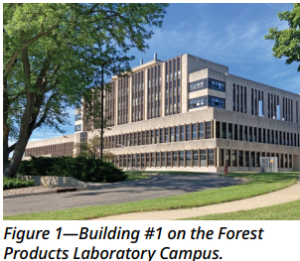Wood Science and Wood Flooring Inspection Event
About the Event
This robust, blended-learning course offers participants the opportunity to delve into wood science and master wood flooring inspection techniques through a combination of in-depth online education and intensive, hands-on in-person training. Developed for experienced professionals, the course equips inspectors with the critical knowledge and practical expertise necessary to assess wood flooring installations accurately and professionally.
Learning Outcomes:
- Evaluate wood flooring materials and installation quality
- Conduct moisture and environmental assessments
- Identify and document defects and irregularities
- Prepare detailed, professional inspection reports
Course Overview:
will engage in a comprehensive curriculum that covers material evaluation, moisture and environmental testing, issue identification, and professional report preparation. The course structure includes:
- Online subfloor preparation for inspectors
- Online report writing course (held 1–2 weeks prior to the in-person session)
- In-person practical training
- Written examination for optional Certification
- Submission of sample inspection reports for certification review
In-Person Training Details:
The in-person portion of the course will be held at the Forest Products Laboratory in Madison, Wisconsin, from July 22-24. This training is available to all skill levels and offers invaluable, real-world practice in inspection techniques. Participants that complete this in-person training and meet the certification prerequisites are encouraged to register to become certified as Wood Inspector.
Certification Prerequisites:
- Participants must have a minimum of 5 years of experience in the flooring industry to get certified.
Certification Requirements:
To achieve NAFCT certification, participants must:
- Complete the online subfloor for the inspector course
- Complete the online report writing course held 1–2 weeks prior to the class
- Attend in-person practical training sessions
- Pass written examination to be completed online after training
- Submit sample inspection reports for review
- Maintain current NAFCT membership ($250/year for inspector level)
- Pay one-time Certification Testing Fee $250
3-DAY EVENT: Featuring Presentations, Hands-on Lab Experiences, and Opportunity to Get Certified
When: July 22, 23, 24 | 8:30 am to 3:30 pm
Location: Forest Products Laboratory | Madison, WI
EVENT REGISTRATION FEES
- $999 NAFCT member price
- $1,495 Non-members
CERTIFICATION FEE (OPTIONAL)
- $250
SAVE $100 WITH EARLY BIRD RATES – REGISTER BY JUNE 16TH
Meet the Presenters
Alex C. Wiedenhoeft, Ph.D.
 Alex is a Research Botanist and Team Leader in the Center for Wood Anatomy Research at the USDA Forest Service Forest Products Laboratory in Madison, Wisconsin. He is also a USDA Adjunct Professor in the Department of Sustainable Bioproducts at Mississippi State University. Curator of the largest wood collection in North America, he has authored several field guides on wood identification and pioneered multiple field-deployable wood identification techniques. He is the cocreator of the XyloTron computer vision wood identification system and creator of the XyloPhone system. On the Team, he participates actively in the research, training, and Xylarium initiatives
Alex is a Research Botanist and Team Leader in the Center for Wood Anatomy Research at the USDA Forest Service Forest Products Laboratory in Madison, Wisconsin. He is also a USDA Adjunct Professor in the Department of Sustainable Bioproducts at Mississippi State University. Curator of the largest wood collection in North America, he has authored several field guides on wood identification and pioneered multiple field-deployable wood identification techniques. He is the cocreator of the XyloTron computer vision wood identification system and creator of the XyloPhone system. On the Team, he participates actively in the research, training, and Xylarium initiatives
Paul Pleshek
 Executive Director Paul Pleshek has served as President of the National Institute of Floor Coving Inspectors and on the Board of Directors for the IICRC as well as different committees for NWFA, IICRC, FCLC, FEG and NICFI.
Executive Director Paul Pleshek has served as President of the National Institute of Floor Coving Inspectors and on the Board of Directors for the IICRC as well as different committees for NWFA, IICRC, FCLC, FEG and NICFI.
Sonny Callaham
 Currently Sonny is the Technical Director for Divergent Adhesives. Sonny is the co-founder and Chairman of the Board for NAFCT and carries multiple industry certifications including CFI, IICRC, ICRI and NAFCT. He has been a member of ASTM F06 Resilient Floor Covering for over 15 years.
Currently Sonny is the Technical Director for Divergent Adhesives. Sonny is the co-founder and Chairman of the Board for NAFCT and carries multiple industry certifications including CFI, IICRC, ICRI and NAFCT. He has been a member of ASTM F06 Resilient Floor Covering for over 15 years.
Registration is required. Please click on the link below to reserve your seat.
This event will be limited to 16 registered attendees in order to provide valuable hands-on experience. Don’t delay in registering.
EVENT REGISTRATION FEES
- $999 NAFCT member price
- $1,495 Non-members
CERTIFICATION FEE (OPTIONAL)
- $250
SAVE $100 WITH EARLY BIRD RATES – REGISTER BY JUNE 16TH
Attendees will be responsible for making their own transportation and stay accomodations.
Getting to the Forest Products Laboratory
Address: 1 Gifford Pinchot Drive, Madison, WI 53726
Nearby Airports:
- The closest airport is the Dane County Regional Airport (MSN). It is just over seven miles from the Lab and travel time is approximately 20–30 minutes depending on traffic.
Places to Stay:
- Best Western Plus InnTowner—Madison
2424 University Ave, Madison, WI
Toll-free Central Reservations (US & Canada Only): 1 (800) 780-7234
Hotel Direct Number: (608) 233-8778 - DoubleTree by Hilton—Madison Downtown
525 W. Johnson St, Madison, WI
(608) 251-5511 - Madison Radisson Hotel West
517 Grand Canyon Dr, Madison, WI
(608) 718-5842 - SpringHill Suites—By Marriott Madison
4601 Frey St, Madison, WI
(608) 233-4580
About the Forest Products Laboratory
 The Forest Products Laboratory, based in Madison, Wisconsin is the only national Forest Service wood product laboratory facility. Producing high-quality, science-based innovation, the Lab research improves the safety, comfort, and well-being of every American, every day.
The Forest Products Laboratory, based in Madison, Wisconsin is the only national Forest Service wood product laboratory facility. Producing high-quality, science-based innovation, the Lab research improves the safety, comfort, and well-being of every American, every day.
The majority of the Forest Service’s forest product research is conducted at the Forest Products Laboratory. Research programs include biorefinery and biomass utilization, nanotechnology, wood science, wood structures, wood and polymeric composites, biotechnology, pulp, paper, wood preservation, and life-cycle assessments.
Forest Product Laboratory scientists investigate wood and wood fiber properties, harness cutting edge technologies to develop renewable polymers
and green chemicals from wood, and research ways to make structures safer and more sustainable. Agency scientists also provide technical support to the public and industries for using wood, wood identification, building code development, and international standards development.
The Lab partners with other government agencies, small businesses, tribal communities, industry collaborators, and universities worldwide. Research stimulates economic resilience in many areas, including housing, bioenergy, tourism, and packaging and paper. By promoting the efficient use of forest resources, Forest Product Laboratory research also helps protect against natural disturbances, such as wildfires, invasive species, and a changing climate.

![Orion Wood Moisture Meters - 728x90[9525] Orion Wood Moisture Meters - 728x90[9525]](https://nafct.com/wp-content/uploads/Orion-Wood-Moisture-Meters-728x909525-1.jpg)
![ARDEX - NAFCT Website Banner[2855] ARDEX - NAFCT Website Banner[2855]](https://nafct.com/wp-content/uploads/12430-NAFCT-Website-Banner2855.jpg)
